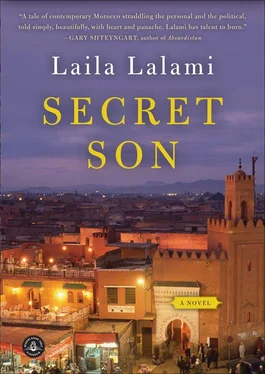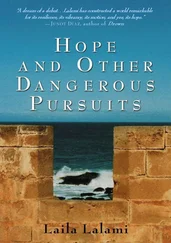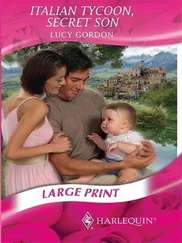For a moment, Youssef remained in his spot, paralyzed by the horror. Then he ran out of the café, too, through the lobby, and out the double glass doors. Just as he appeared outside on the steps of the hotel, an officer tackled him and pushed him roughly against the wall. “Wait,” Youssef cried out. “You don’t understand.”
YOUSSEF SAT ON THE CURB for what seemed like days but what he would later learn was just two hours. His hands were cuffed behind his back, and beside him on the ground were the jellaba and the veil. An officer stood across from him, watching him. Youssef felt as though he were dreaming, as though he were still lying on his bed in the little house in Hay An Najat and he would wake at any moment. Yet there was no relief from the nightmare. “You have the wrong man,” he said for the hundredth time. “This is a big mistake.”
“No mistake,” the officer said.
“I had nothing to do with it.”
The officer chuckled. “You people always say that.”
“I came here to stop them from killing Benaboud,” Youssef said. His throat was parched and he felt his blood thumping in his ears.
“You can tell this to the Commissaire, although I wouldn’t advise it.” The officer laughed, as if the thought of Youssef’s convincing the police chief of his innocence was somehow irrepressibly funny. Now the officer stretched his hands above his head and cracked his knuckles. He had the look of a man satisfied with a good day’s work.
Another officer came by. “We’re getting close,” he told his colleague. “We can take him in as soon as the Commissaire gives the OK.”
It occurred suddenly to Youssef that his innocence was irrelevant. It served no purpose in the overall plot and, what was worse, it complicated matters for the police. This realization hit him with the full force of revelation. He could see clearly now that he had been a small actor in a big production directed by the state.
What terrified him was that he had not even been aware that he had played a role in the assassination of Farid Benaboud. Naively, he had believed he was acting like a concerned human being, maybe even a hero: he had tried to stop a murder. But now he had discovered that the part that had been reserved for him by the state was that of the failed terrorist, the one who gets caught, the one who makes the police look good because his arrest proves that the state tried to protect the inconvenient journalist.
Amin had received a simple role, a role that required no lines. He had killed Benaboud, out of anger, despair, resentment, a broken heart, a belief that his life was not worth living, or for another reason altogether. He was dead now, having traded his life for whatever the Party had promised him. It was Maati who had received the best part. He had fooled everyone. Youssef had considered Maati to be a simple man, someone who was not fit to be a confidant to his secrets, when in fact he had been trusted with far heavier secrets, and he had delivered them to the police. Appearances are deceiving, Youssef’s mother always said.
The Commissaire finally arrived on the scene and was immediately surrounded by aides who briefed him on the investigation. He listened, nodding a few times, and then his eyes came to rest upon Youssef. “This is him?” he asked.
“Yes, sir,” one of his assistants replied, pointing. “His name is Youssef El Mekki.”
I am grateful to the Hedgebrook Foundation for providing me with space in the spring of 2005 in which to work on this novel; to Oregon Literary Arts for financial support in 2006; to the Fulbright Commission for funding my stay in Casablanca in 2007. I am also thankful to the Multnomah County Library and the libraries of the University of California at Riverside.
The neighborhoods of Hay An Najat and Qubbet Jjmel are fictional, as are the Star Cinema, the Grand Hotel, and the publications run by Hatim Lahlou and Farid Benaboud. In transliterating Moroccan Arabic expressions I have tried to be as phonetically correct as possible without resorting to diacritical marks. For proper names, however, I have used standard Moroccan spelling.
I am indebted to Antonia Fusco, Kathy Pories, Brunson Hoole, Rachel Careau, Michael Taeckens, Courtney Wilson, Craig Popelars, Kendra Poster, Ina Stein, Elisabeth Scharlatt, and the entire team at Algonquin for their work on behalf of this book. Many thanks to my amazing agent, Ellen Levine, who believed in it from the beginning.
I thank my parents and siblings for their patience and continued indulgence with me. Thank you to my daughter, Sophie, who came to me at the same time as this book and brings me the kind of joy it cannot. As always, my thanks to Alexander Yera, my husband, my partner, my best friend, my first and last reader.
A CONVERSATION WITH THE AUTHOR
Your first book-length work in English was a collection of short stories. Can you contrast the experience of writing a full-length novel to that of writing shorter works? What challenges and rewards are offered by each form?
Before the publication of Hope and Other Dangerous Pursuits , I had already written a couple of novels, which have, fortunately for readers, remained unpublished. So Secret Son was really just a return to a form I had known and loved for most of my life. For me, writing a short story is a bit like getting to know a significant part of a character’s life, while the novel is like living that character’s life for a few years. A short story is very intense, like a brief but powerful commitment. A novel is more moderate, but also a very rewarding undertaking.
As far as the writing process is concerned, what struck me with this novel was that the revision process was very different. For instance, with Hope , I was able to pull out one story and revise it, or even replace it with a new one, without having this affect the shape of the entire book. But with Secret Son , any changes to one inevitably meant changes somewhere else in the novel, so the revision process was much more labor-intensive.
Can you comment a little about your decision to write in English rather than in one of your native languages? Why did you make this choice? What challenges are involved?
I grew up speaking both Moroccan Arabic and French, but my earliest exposure to books came through French because I received, to my long-lasting despair, a semicolonial education. Nearly all of the children’s literature that I was exposed to as a child was in French, so when I started writing fiction, it was in that language. While I could read and write Arabic competently enough, I found it very hard to write fictional narrative in Arabic. I should say that my use of French in fiction isn’t at all that unusual for a Moroccan writer of my generation (witness, for instance, the work of Fouad Laroui, Abdellah Taïa, or Driss Ksikes).
However, once I left Morocco to study abroad, I started to question the bilingualism with which I had grown up. In my country, French and Arabic did not always have a harmonious relationship; rather, they were often in competition in the public sphere. I started to feel really uncomfortable with the idea of writing fiction using the colonial tongue. At the same time, I had been working on my dissertation at the University of Southern California, and I had to write in English every day. That was how the idea of writing fiction in English came about. Ideally, I would have written in my native language, but since I could not, it seemed that English was my only other option. And between writing in English and not writing at all, I made the choice of writing.
Writing in English about Moroccan characters comes with certain challenges. For instance, I tend to excise idiomatic expressions (common phrases like “she went to bat on this project” or “he kicked the bucket”) from my writing because they are so culturally specific. I include words from Moroccan Arabic that are hard to translate in simple ways. For example, it is easier to use the word tagine than to say something like “a stew of meat and vegetables cooked in a clay pot.”
Читать дальше












